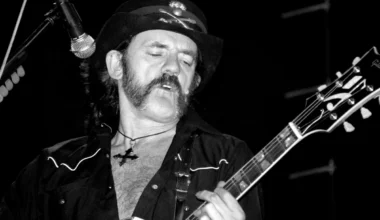The Beatles vs. Rolling Stones is one of the most divisive questions in cultural history. That is, when you introduce it as a purely musical proposition, at least. Strangely enough, if you frame it as a true competition, the music industry has consistently declared one winner. The group that formerly received praise as the cutesy antithesis of the vulgar vagrants from the South.
Perhaps the strongest voice in this very on-brand debate was none other than the late Lemmy Kilmister of Mötorhead. He is one of rock ‘n’ roll’s hardest geezers. In his 2004 memoir White Line Fever, he wrote, “The Beatles were hard men.” By contrast, he believed that The Stones were just trying to enhance their image by putting on a front of blue-collar hardship. The Rolling Stones were the motherfucking boys, the Motorhead rocker went on. “But they chose to starve in London in order to project a certain level of disrespectability.”
Though Lemmy may have assumed that “Brian Epstein cleaned them up for mass consumption,” he thought the Fab Four had a constant sense of rough and tumble dockside spirit. This was evident in Hamburg, and although it may have been rejected when commercial success drew near, the story in many music circles is that The Beatles paved the way for others to follow in their rough-and-tumble footsteps.
Ian Anderson assumed Mick Jagger attempted to imitate John Lennon because he was the most adventurous of the group. But The London School of Economics graduate could never quite pull it off, as Lemmy said in front of him. Anderson reflected on the Fab Four’s rough, working-class beginnings. He said, “With hindsight, you could say Hamburg was The Beatles’ punk period. Their edgy and dangerous days that were hard to square away with the almost chocolate-box pop proposition they became.”
As a young man with a comparable upbringing, he quickly identified Lennon as his hero. Ian Anderson told Louder Sound, “John had attitude, a sense of disdain when it came to being groomed and made to dress in matching suits.” “When I first saw photos of The Beatles in Hamburg, I realized that here was John Lennon in his element. He was clad in leather, greasy with a quiff, and exuding a sense of menace.” These “iconic” photos moved many aspiring musicians. Especially The Rolling Stones, who were hoping to follow in The Beatles’ footsteps. They aimed to go from their once-audacious ambition of becoming London’s premier blues nightclub band to an international force.
Every group of “bad boys,” according to Ian Anderson, needs a leader, and in the case of The Beatles, he believed that “Lennon was probably the only one who’d be handy in a fight.” Anderson is the flute-playing front man of Jethro Tull. Jagger realised this as well and tried to adopt The Rolling Stones’ image of the tough guy. Unfortunately, Anderson believes he was always too close to Dartford for the whole thing to be believable.
Anderson stated angrily, “Mick Jagger always looked too self-conscious to be considered a tough guy. He looked like he’d fall over if you blew on him.” Lemmy would quip in jest that while “Jagger wore a frock,” The Beatles were hard.
Even though this argument seems archaic and childish, there is an unmistakable beauty in it. A panel of his peers adding an intriguing layer by calling Lennon the hardest man in the entire Beatles vs. Stones debate.








